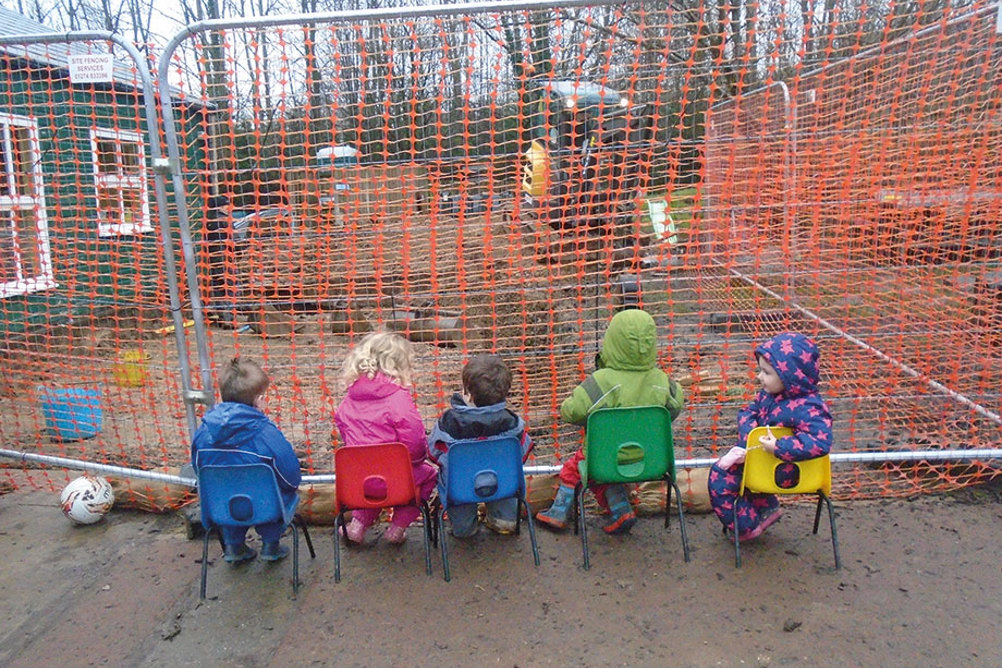
The Department for Education has awarded the extra capital grants for those settings which did not manage to get through the previous oversubscribed round of allocations finalised in January.
The additional money, which brings the total investment to £100 million, is promising to facilitate around a further 9,000 places – a total of approximately 18,000.
A deadline of 31 October has been set for nurseries, pre-schools and playgroups to complete the building and upgrade work.
Early years minister Caroline Dinenage said, 'This investment will deliver more childcare places to working parents, giving them the benefits of 30 hours free childcare while giving their children high-quality early education that sets them up for life.
'This is backed by our record £6 billion investment in childcare per year by 2020.'
As part of the Government's 'Plan for Britain', which it claims is addressing inequality, £5 million of the expanded capital grants pot has been ring-fenced for 12 Opportunity Areas, which have been identified as social mobility ‘coldspots’.
The areas, which have already shared £72 million, are: Blackpool, Bradford, Derby, Doncaster, Fenland & East Cambridgeshire, Hastings, Ipswich, Norwich, Oldham, Scarborough, Stoke-on-Trent, and West Somerset.
A number of recipients have praised the capital funding, while other sector representatives have argued that the extra places represent a fraction of the required number.
Government claims the level necessary to fulfil the 30-hour offer is 390,000 places, with the Pre-school Learning Alliance estimating it to be much higher, at around half a million.
There have also been recent reports of uncertainty among previous successful applicants, such as Sunflowers Day Nursery in Pately Bridge, North Yorkshire, which said it had started work with a very tight turnaround in order to make the September roll-out.
Sunflowers’ new extension received £63,000 from the DfE, creating a much-needed extra 28 places. However, work had to start before any of the grant was received, and the business paid out £20,000 of its own money.
Manager Heather Clark-Kelly said, 'We’ve now had sight of the terms and conditions and understand we must offer the 30 hours for as long as it is offered by the Government. If we stop, we have to pay back the grant.’
After submitting its bid to a tight schedule in August 2016, Ms Clark-Kelly heard in December that her setting was the only one in North Yorkshire to be successful.
Helen Dennis, manager of Mudeford Wood Playgroup in Dorset, said she was looking forward to spending its grant on an 'attractive, purpose-built' facility which would help improve quality and flexibility for parents.
New grants are also set to provide an extra 170 places in the borough of Swindon, including 30 for children with complex needs.
In Wigan, Little Giggles Private Day Nursery is building a new nursery, and there will be improvements at Brackensdale and Alvaston infant schools in Derby.
Neil Leitch, chief executive of the Alliance, described it as a 'drip-feed approach to early years investment', with 'relatively small pots of funding' having a 'limited impact on the sustainability of the sector' being announced every few months.
'With less than half of childcare providers currently committed to delivering 30-hours places, and many of those opting into the scheme considering limiting the number of places they deliver, we know that capacity is going to be a real issue when the offer rolls out in September – and the fact that this additional money has now been found suggests the government does too.'
Mr Leitch added, 'If the government cannot afford to fulfil the promise it made on 30 hours, it should admit that what it’s offering is a subsidised offer and promote it accordingly. If it can afford it, it should be completely free to both parents and providers. There is no third option.'
In addition to the capital money, £5 million of Voluntary and Community Sector (VCS) grants will be shared among 13 projects working to improve the quality of early education and supporting professionals to deliver the 30 hours offer.
This includes:
Register now to continue reading
Thank you for visiting Nursery World and making use of our archive of more than 35,000 expert features, subject guides, case studies and policy updates. Why not register today and enjoy the following great benefits:
What's included
-
Free access to 4 subscriber-only articles per month
-
Unlimited access to news and opinion
-
Email newsletter providing activity ideas, best practice and breaking news
Already have an account? Sign in here
